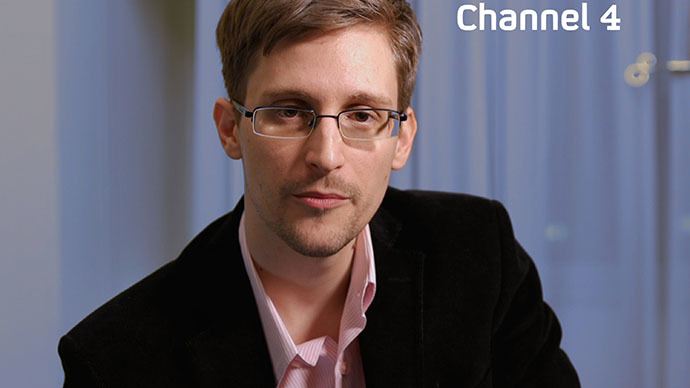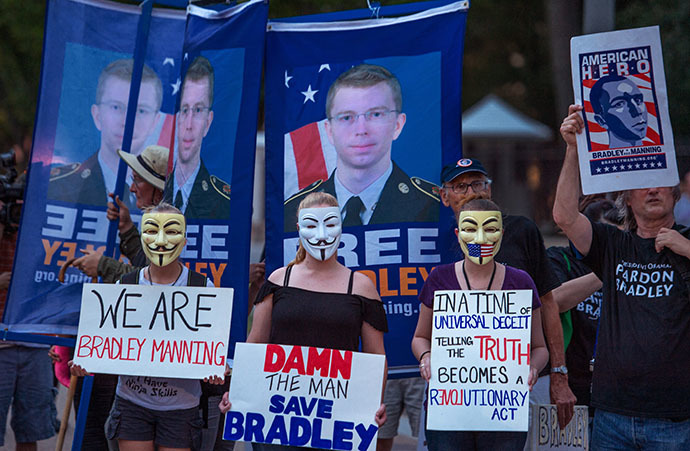Courage and transparency: Why Snowden and Manning deserve the Nobel Peace Prize

My colleagues in the Pirate Party have nominated Edward Snowden and Chelsea Manning for the 2014 Nobel Peace Prize. This makes me very proud to be a part of the Pirate Party movement, and there are great reasons why Snowden and Manning deserve the prize.
It could be easily argued that Snowden and Manning deserve the Peace Prize because they undermined the ability of the world's #1 aggressor, the United States, to project aggression and violence on other people. While that argument would be true in itself, it's rather weak and superficial. The good reasons go much deeper, and definitely don't just apply to the United States.
In the nomination, the Pirate Party MPs and MEPs list a very good rationale for why Snowden and Manning should get the prize. Manning's revelations to the world, made at great sacrifice, spurred democratic movements in many repressed countries. Snowden's revelations made it possible to have a meaningful debate about the balance between national security and individual liberty.
But I'd argue that the reasons for giving the Peace Prize to Snowden and Manning go deeper, much deeper, than the individual sacrifice coupled with the immediate and profound global results.
Courage and transparency both make wars impossible
First, courage. The ability to wage war hinges on military leaders' ability to make soldiers – often drafted, non-consenting soldiers – kill other people without having the ability to refuse, under threat of getting killed themselves. In many wars, there have been heroes who have shown courage to defy such orders. We typically celebrate them. When those heroes become many, the war effort fails as a whole – and that's why they are usually singled out for brutal, disproportional, and harsh punishment, in attempts to prevent the spread of courage and morality among the soldiers.
Both Snowden and Manning have shown exemplary and outstanding courage in defying military and paramilitary power structures for the greater good of humanity.

Second, transparency. It's evident from the past century of warfare that most, if not all, wars have been based on large, bold, straight-faced lies to the people at large from the few people in power. What Snowden and Manning did was to introduce unprecedented levels of transparency where these holders of powers became unable to lie as they have always done, and by extension, unable to beat the drums of war with lies. Moreover, Snowden and Manning introduced the threat of future exposure to anyone holding power thinking of lying like that today, significantly reducing or eliminating the risk of any future large-scale war based on lies. This is a positively huge development for humankind.
It used to be that those holding power could lie about anything without repercussions. After Snowden and Manning, that's not true anymore.
Unfortunately, the Peace Prize took a hit to its reputation from awarding President Obama the prize in 2009 – but there are many recipients who have been more than worthy. The International Campaign to Ban Landmines, Doctors Without Borders, and just last year, the Organization for Prohibition of Chemical Weapons. Awarding the prize to Snowden and Manning could go a long way toward restoring the well-deserved respect for the prize itself.
In this context, it's decent to acknowledge that giving the prize to Snowden and Manning could be seen as a political choice and a political statement. I'd dismiss that viewpoint out of hand. It's only seen as a "political choice" because the people who wage war, the people in power, disagree with the actions of Snowden and Manning and dislike their immense impact. That's not something that should be seen as a deterrent for the prize – rather the complete opposite.
After all, being seen as a "political choice" only means that you made a huge difference in the world, and that you're not very popular with the people in power who wage war. If that doesn't qualify you for a Peace Prize, then what does?
The statements, views and opinions expressed in this column are solely those of the author and do not necessarily represent those of RT.
The statements, views and opinions expressed in this column are solely those of the author and do not necessarily represent those of RT.













